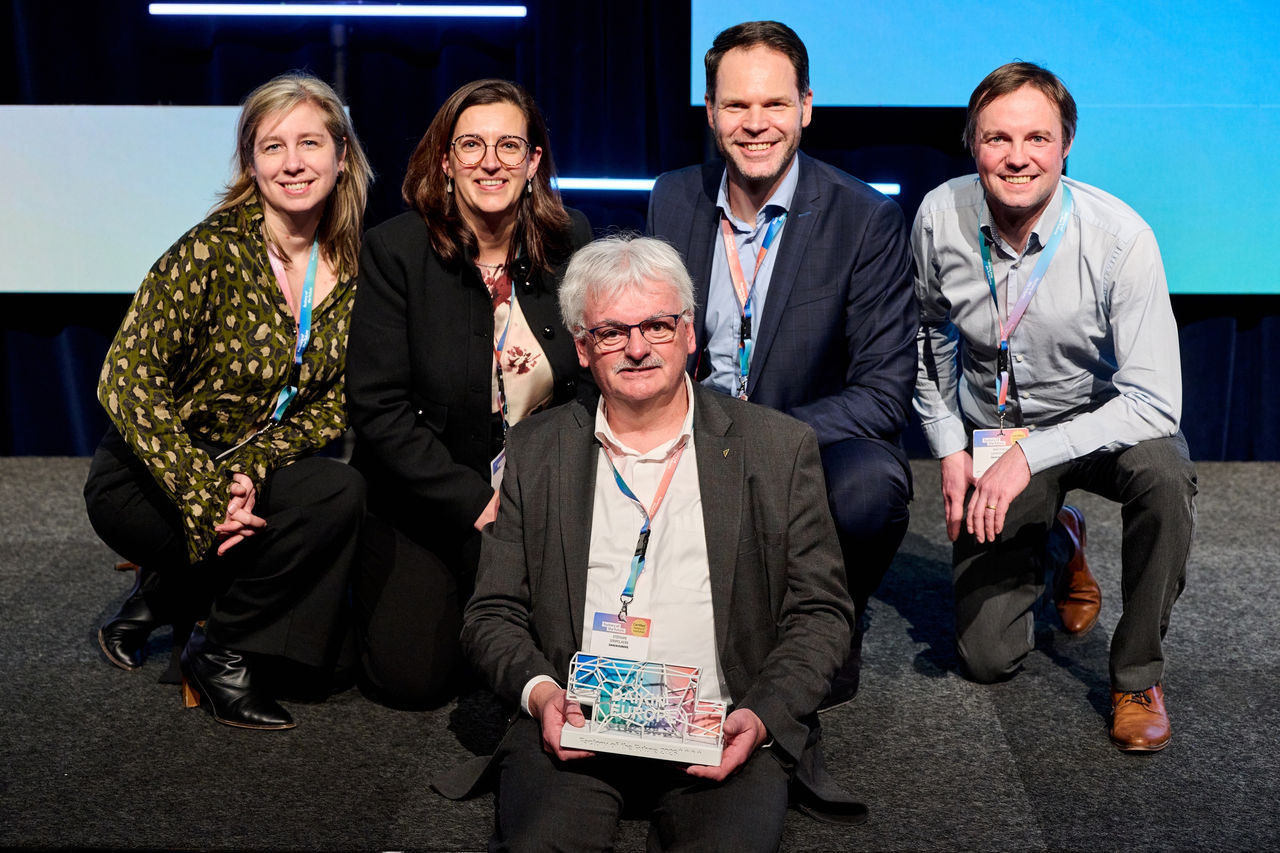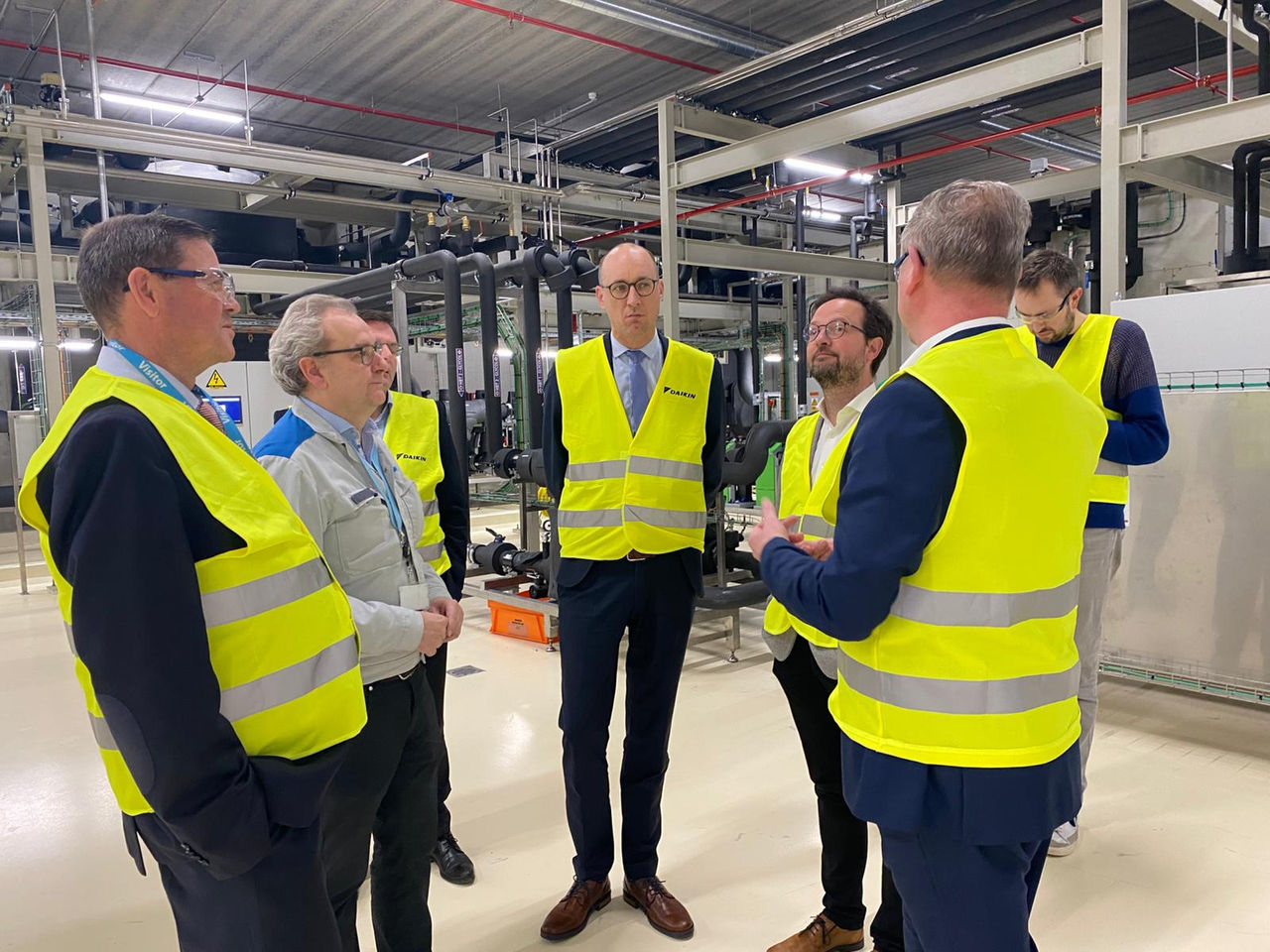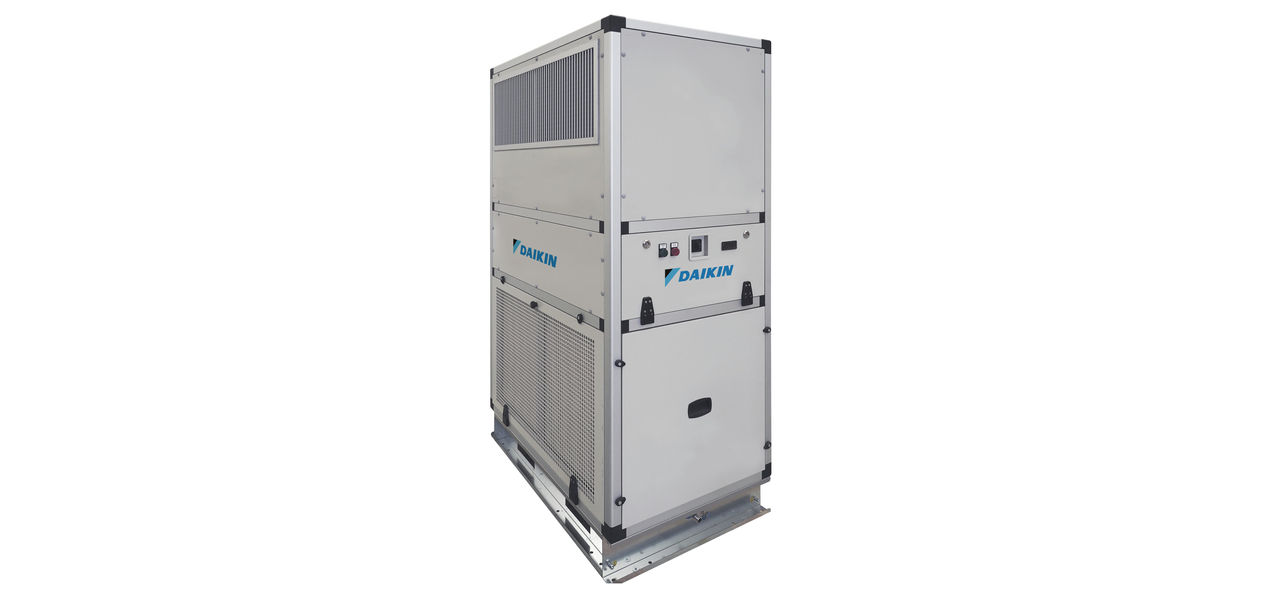Amidst uncertainty over supply and pricing of natural gas, European member states are looking for ways to reduce their gas demand by 15% in the upcoming winter. Part of the solution lies in alternative sources of heating, such as using air conditioning systems already in place today. In fact an air conditioning system is an air-to-air heat pump, capable of heating buildings in a very efficient and effective way. In the case of a 600m² building, using the air conditioning system as an air-to-air heat pump to heat can help save up to 112,880kWh of natural gas and reduce heating costs by 25%.
Given the challenges the EU is currently facing, the European Commission drew up the European Gas Demand Reduction plan (1), recommending member states to reduce gas use voluntarily by 15% between now and March 2023. According to the EU, large savings can be achieved in the way we heat and cool our buildings. It is estimated that nearly 30% of commercial buildings in the EU are still heated by gas (2) while some are also equipped with an air conditioning system. It is often not understood that an air conditioning system is an air-to-air heat pump, which can be used for efficient and effective space heating. Buildings can significantly and immediately decrease their gas demand by using their air conditioning system in heating mode and simultaneously lower overall costs.
Reducing the gas bill
Calculations from leading heat pump manufacturer Daikin show that using an air conditioning system for heating significantly reduces natural gas demand. In the example of a 600m² office building, a VRV air-to-air heat pump avoids up to 112,880kWh of natural gas use compared to traditional space heating (3). On top of that, businesses can reduce their energy cost with nearly 30% thanks to a heat pump. For a business operating in Belgium this means reducing its heating cost from 25,237 euro to 17,695 euro per year (4).
Why is a heat pump so efficient?
An air-to-air heat pump has both an indoor and an outdoor unit. When operating in cooling mode, the indoor unit extracts heat from the inside and transfers it to the outdoor unit, which rejects the heat to the outside. The operation can, however, be reversed to heat indoors, using heat extracted from the outdoor air by the outdoor unit. Even at outdoor temperatures well below 0°C, an air-to-air heat pump will still efficiently provide heating.
A heat pump is up to four times more efficient than a gas system as three-quarters of the energy used for heating comes for free from the outside air while only consuming a quarter in electricity use.

Further reducing energy use
If a building already has a heat pump installed, it can be optimized by using energy-saving systems that will further reduce the energy bill. Intelligent cloud systems like Daikin’s Cloud Service provides clients with access to tools that not only detect excessive energy use in parts of their building, as these systems also allow them to act fast and intervene where needed.
Daikin, front runner of sustainable transformation in HVAC market
As a leading heat pump company, Daikin supports the European energy transition with its various heat pump solutions developed and manufactured in Europe. With its Environmental Vision 2050, the company aims to be carbon neutral throughout its entire value chain and life cycle of products and solutions by 2050. With a network of locally trained experts, the company will help its customers to decarbonize buildings and create a healthy environment for generations to come.
Find out more here
COMMUNICATION FROM THE COMMISSION TO THE EUROPEAN PARLIAMENT, THE COUNCIL, THE EUROPEAN ECONOMIC AND SOCIAL COMMITTEE AND THE COMMITTEE OF THE REGIONS "Save gas for a safe winter" (https://eur-lex.europa.eu/legal-content/EN/TXT/?uri=CELEX%3A52022DC0360)
Energy balance – Final consumption – other sectors – commercial and public services – energy use: https://ec.europa.eu/eurostat/databrowser/bookmark/5463efac-cd35-4d4c-b027-d706050cdf7f?lang=en
Calculated by Daikin’s Seasonal calculator available on Daikin’s business portal (registration needed) (https://my.daikin.eu/denv/en_US/home/applications/software-finder/solutions-seasonal-simulator.html), calculated for a 28HP VRV heat pump with 15 indoor units connected, with estimated heat load of 100W/m²
Based on V-test performed on 05/10/2022 at https://vtest.vreg.be/ with Engie Flow gas PRO Gas contract: 25,236.90 euro/year for traditional heating (112,880kWh of gas) vs Engie Flow PRO electricity contract: 17,694.78 euro/year for using a VRV systems for heating (28,192kWh of electricity) (prices include energy cost, distribution cost, taxes, excl. VAT for Ostend, Belgium)
Every year in May we will provide an update of this text.
Press releases
-
Your-AC-is-a-heat-pump_DEUEN22-018_Press release_EnglishZIP | 494.94MB
About Daikin
Daikin Europe N.V.
Daikin Europe is a subsidiary of Daikin Industries Ltd. and the leading provider of heating, cooling, ventilation, air purification and refrigeration solutions in Europe, the Middle East and Africa. The company designs, manufactures and brings to market a broad portfolio of equipment, as well as tailor-made solutions for residential, commercial and industrial purposes. To date Daikin Europe has over 12,000 employees working at more than 59 consolidated subsidiaries. It has 12 major manufacturing facilities based in Belgium, the Czech Republic, Germany, Italy, Spain, Turkey, Austria and the UK. The headquarters of the Daikin Europe group are in Belgium, Ostend. The company was established in 1972, production in Europe started in 1973.
About Daikin Industries Ltd.
Based in Osaka, Japan, Daikin Industries employs over 89,000 people worldwide. The global company is market leader for heat pump and air conditioning systems, as well as air filtration. It is the only air conditioning manufacturer in the world that researches, develops and produces all important system components, such as refrigerants, compressors and electronics, in-house. The company achieved € 23.7 billion sales turnover in financial year 2021 (1 April 21 – 31 March 22).
Media Contacts Daikin Europe N.V.
Sofie Sap – T.: +32 472 580 482 Mail: sap.s@daikineurope.com
Daisuke Kakinaga – T.: +32 465 462 321 Mail: kakinaga.d@bxl.daikineurope.com



